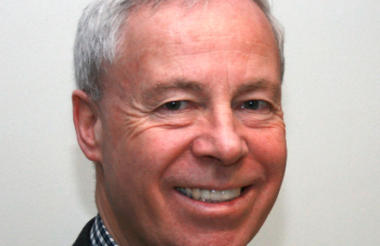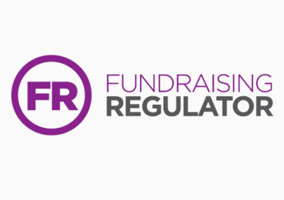The Fundraising Regulator has said that it is confident of raising enough money from the levy to continue operating, but it has revised down its budget.
In response to a Civil Society News story yesterday, which revealed that the regulator was struggling to raise enough money from the levy, the regulator issued a statement saying that it is confident of raising enough funds. But it admitted that it has revised its draft budget for next year to a level below what it previously said was the minimum amount needed to operate.
Today we reveal how failure to check Charity Commission data led to charities being wrongly invoiced. The Fundraising Regulator has also confirmed that it is now actively considering making the levy statutory in its third year.
In a statement issued this morning, answering some of the questions posed by Civil Society News two weeks’ ago, Stephen Dunmore, chief executive of the Fundraising Regulator, said: “Speculation that the Fundraising Regulator is “running on reserves” due to lack of support for the fundraising levy is entirely incorrect. Building up sufficient reserves for the organisation is a medium term aim, as our funding base develops.”
However, documents seen by Civil Society News, stated that: “The funding gap can be met from reserves in the short term but is not sustainable unless the regulator finds extra funding by increasing its charges or widening its charging base.”
The regulator had said that significantly reducing its running costs would make it “ineffective”.
Budget downsized
Today the regulator said its draft budget for its second year is £1.8m, which is £160,000 below what it previously described as the minimum level needed and £400,000 less than what it had originally budgeted for.
The regulator confirmed that it has raised £1.7m from the levy so far, and expects to reach £1.8m. Dunmore said: “Our draft budget for the second year of operation is £1.8m, revised downwards from £1.96m to reflect operational experience acquired during our first year of activity and our forecast of levy income.”
The budget will be approved by the board in July.
He added that the 75 per cent of charities “genuinely within the levy” have paid or agreed to pay, “including all but a handful of the larger charities”.
“Regrettably a number of charities – particularly smaller charities, albeit spending over £100,000 on fundraising – have not prioritised this and, if they decline to pay, will in effect be subsidised by their peers,” he said.
Dunmore also confirmed that the regulator will shortly be publishing an online register of those that have paid.
‘£300,000 could be lost due to refusals’
The regulator also published a table today outlining the progress of the first year of the levy.
It said it had invoiced 2,011 charities, but that 219 have been removed from the scope of the levy and 372 had not yet paid.
Of those that have not paid, 57 have outright refused, while 246 have not responded. A total of 69 are still in negotiation with the regulator.
The regulator said the potential loss due to refusals is £312,000.
Full statement from Stephen Dunmore
Speculation that the Fundraising Regulator is “running on reserves” due to lack of support for the fundraising levy is entirely incorrect. Building up sufficient reserves for the organisation is a medium term aim, as our funding base develops.
Our draft budget for the second year of operation is £1.8m, revised downwards from £1.96m to reflect operational experience acquired during our first year of activity and our forecast of levy income. To date the levy has provided £1.7m in year 1 (September 2017-August 2018) and we are confident that this will reach at least £1.8m. The board will take final decisions on our 2017/18 business plan and budget in July.
The levy was developed in consultation with the sector a year ago. It is designed to build public confidence in fundraising by ensuring that the country’s largest charitable fundraisers play a role in the regulation of their activities.
This was a key recommendation of the Cross-Party Review on Fundraising, designed to minimise the likelihood of the fundraising behaviours such as those revealed in the tragic case of Olive Cooke. It is something that we take very seriously.
The majority of the UK’s largest fundraising charities and their membership bodies have supported the levy system and we appreciate their assistance. 75 per cent of charities genuinely within the levy have paid, or are committed to paying, including all but a handful of the larger charities. That is good news.
Regrettably a number of charities – particularly smaller charities, albeit spending over £100,000 on fundraising - have not prioritised this and, if they decline to pay, will in effect be subsidised by their peers. We will continue to engage with charities who have not yet paid the levy. In the next few weeks, we will publish online a register of all charities who have supported the levy.
We are currently reviewing the levy system to examine whether any changes could usefully be made in year 2. The levy calculations were based on information provided to the Charity Commission by charities and all too often this has proved to be inaccurate. The review is also considering whether there might be advantages in moving to a statutory levy in year 3.
We have been clear, as has the government, that fundraising regulation is not optional. Ministers hold reserve powers to impose both fundraising regulation and the levy on a statutory basis.
Related Articles











